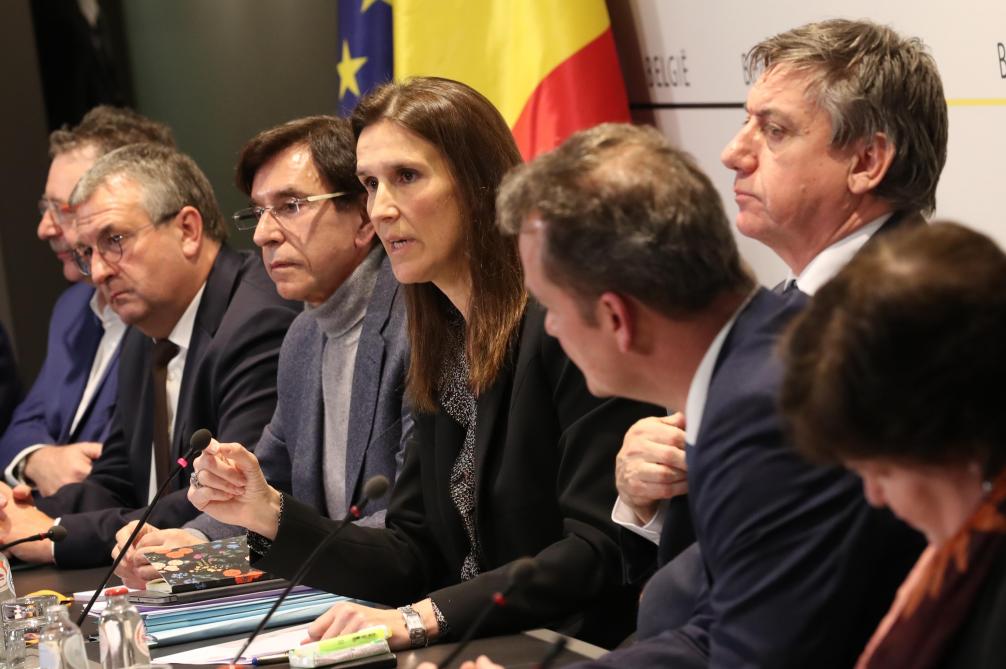After being targeted by criticism that it was not doing enough to curb the coronavirus pandemic, the caretaker government of Belgium took over steering the country's coronavirus response on Thursday.
"We have now entered what is called the federal phase," Interim Prime Minister Sophie Wilmès said at a press briefing late on Thursday, adding that the move was meant to ensure better coordination of the measures taken by different governing entities.
While leaders decided that Belgium would remain in an "enhanced Phase 2" of a 3-Phase risk containment plan, new sweeping measures were announced to halt the spread of the new coronavirus (Covid-19) in the country, in a move which came as the infection tally neared 400 and the death toll hit three.
In a step-up of the previous non-enforceable recommendations issued, the National Security Council ordered all schools to suspend lessons and ordered all bars, nightclubs, restaurants and leisure sites to shut down.
The interim federal cabinet and the regional government leaders also ordered events of all sizes, both indoors and outdoors, to be cancelled, in a move which after several event venues and organisers had already gone one step beyond the previous official advise of cancelling only indoor gatherings with over 1,000 attendants.
Related News
- Coronavirus: Belgium cancels school classes, closes bars
- Coronavirus: mayors, universities, music venues beat federal leaders to the punch
- Coronavirus: False messages on social media cause 'unnecessary' panic
The measures are also poised to slow down weekend activities and deal a hard blow to catering and other businesses, after it was also decided that only shops selling vital goods, such as pharmacies or grocery stores, would be allowed to open during the weekends.
In a move which could provide respite to restaurants and catering establishments, food deliveries and take-away were allowed to continue, with some establishments in Brussels already calling on customers to continue turning up.
"These are not decisions that you make lightly," Flemish Minister-President Jan Jambon tweeted, adding that the "difficult but necessary health measures" would allow Belgium to "defeat the [coronavirus] together."
While the new measures were markedly more radical than the previous advisory ones —now putting Belgium up there with Italy as one of the EU countries imposing the most restrictive measures—Wilmès insisted that the country was not yet facing a lockdown scenario.
"But the aim of the measures is precisely to avoid the Italian scenario," she said, referring to the nation-wide lockdown imposed on Italy's 60 million inhabitants since Monday.
While leaders stopped short of shutting down public transportation, they urged the public to avoid using it if it was not strictly necessary. They also doubled down on a request that companies allow employees to work from home where possible.
Underscoring a sense of urgency, leaders decided that the measures would be immediately implemented, running from Friday midnight until 3 April, the start of the Easter holidays.
To cushion the blow for parents who have no choice but to go to work, the government said that schools should stand ready to provide child care, particularly for health workers, as well as for families whose only child-care provider would be a grandparent.
Belgium's hiked up reaction to slowdown the coronavirus comes after the outbreak was declared a pandemic by the World Health Organisation on Wednesday, with its director-general expressing "concern" over what he referred to as "alarming levels" of inaction to contain the virus' spread.
The new measures also come as public concern over the official response to the outbreak crescendoed and saw many local and non-governmental authorities implement preventative measures because they "couldn't wait for the government" to act.
Gabriela Galindo
The Brussels Times

